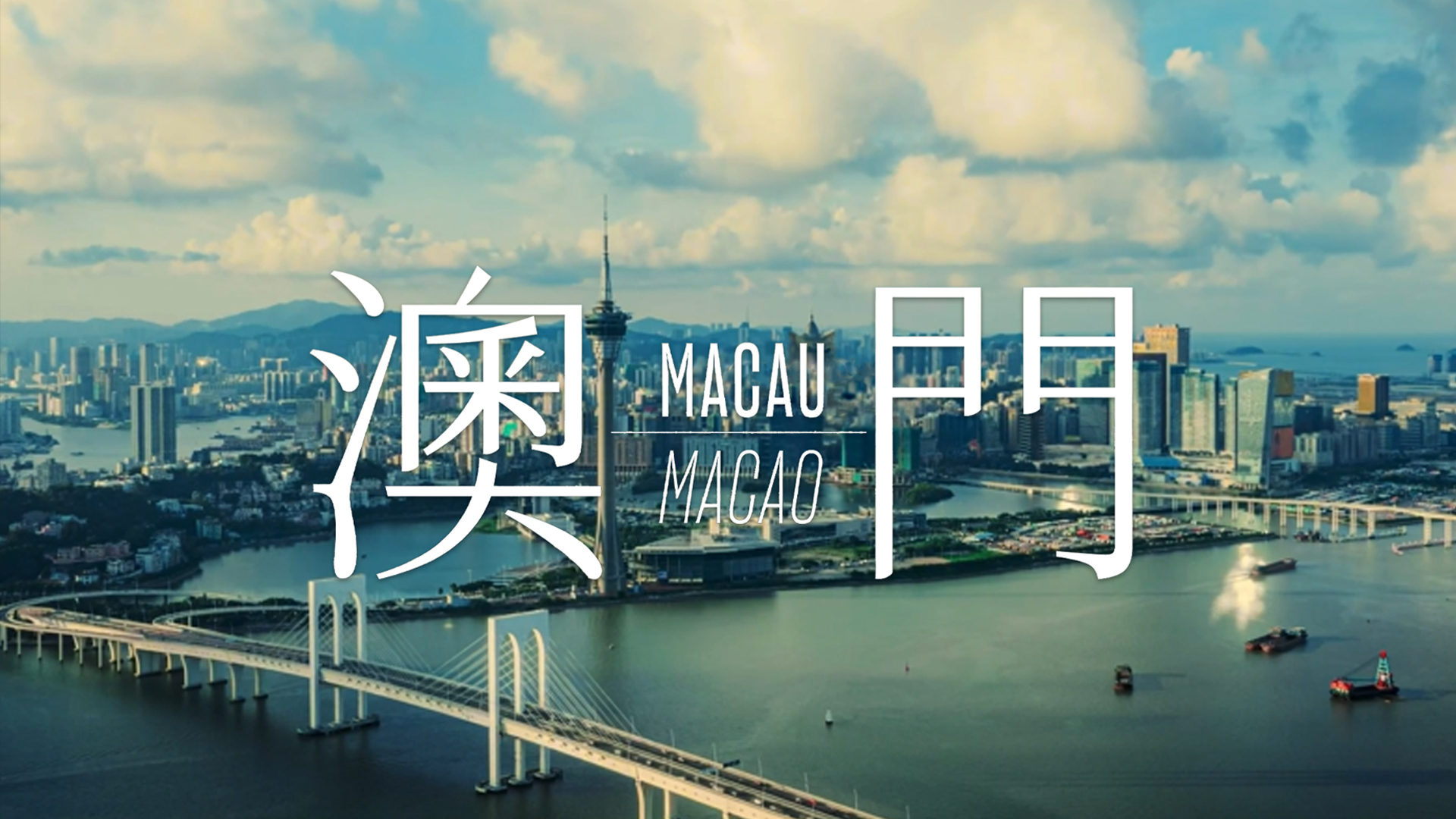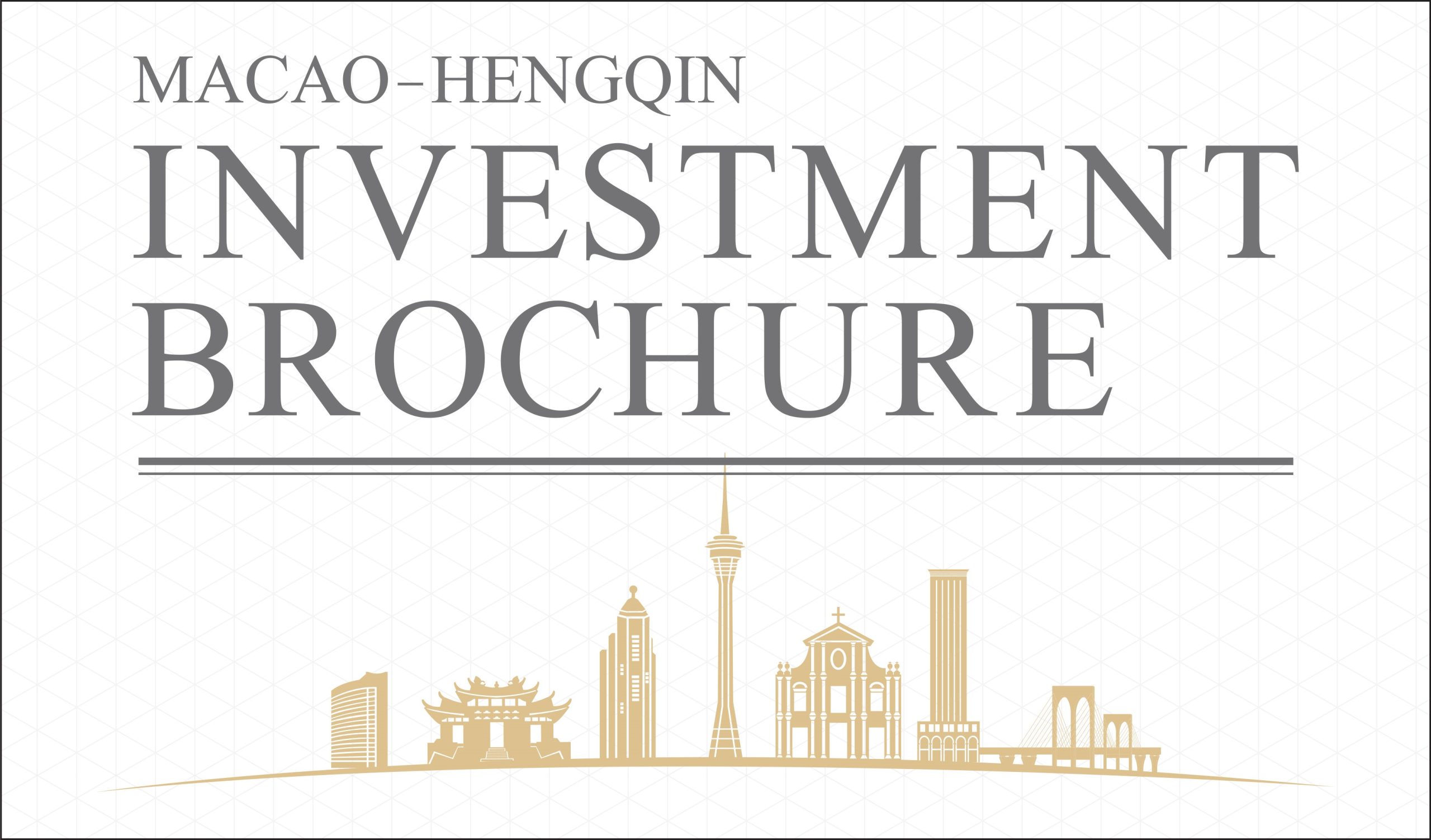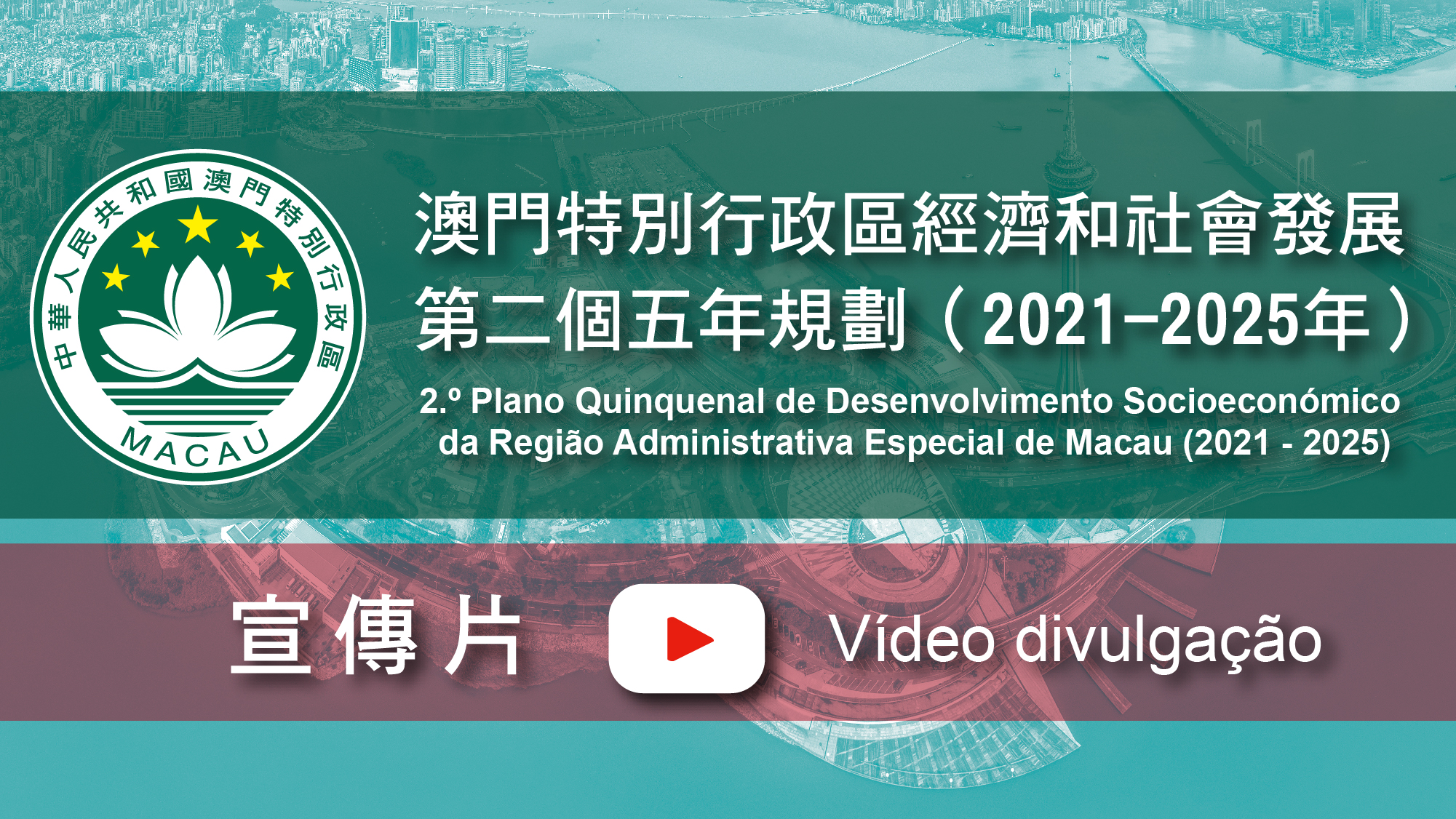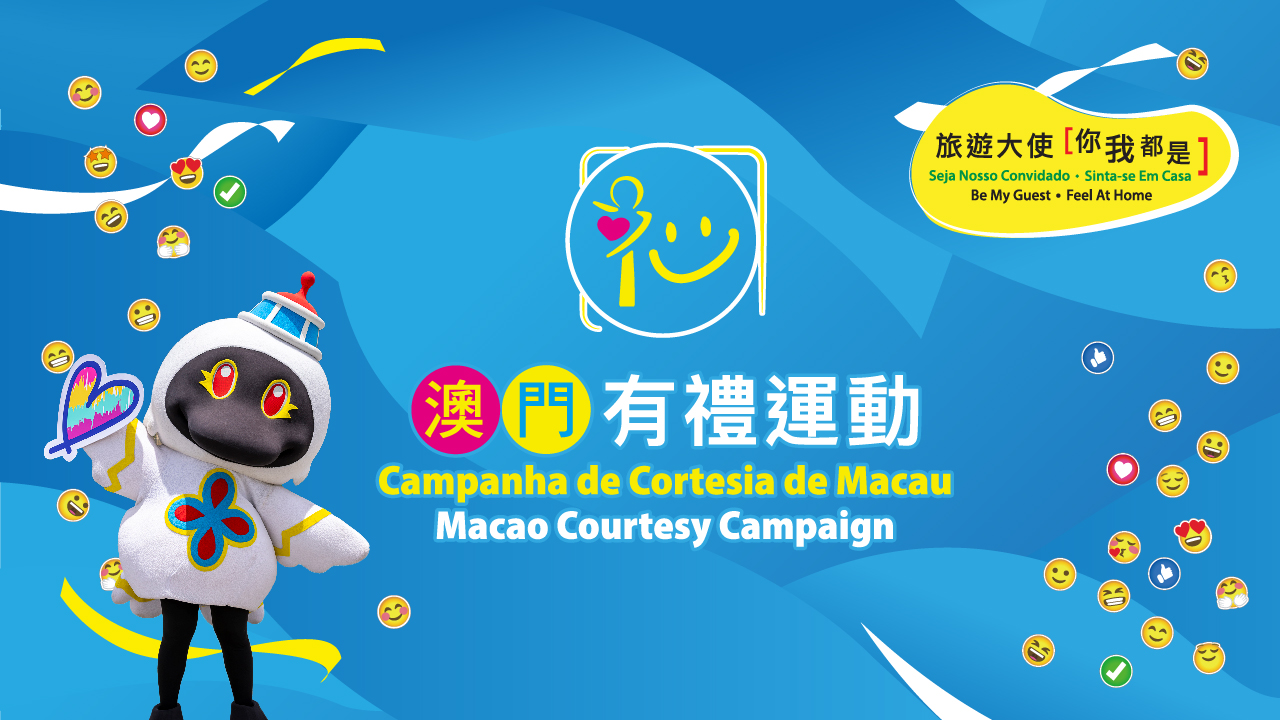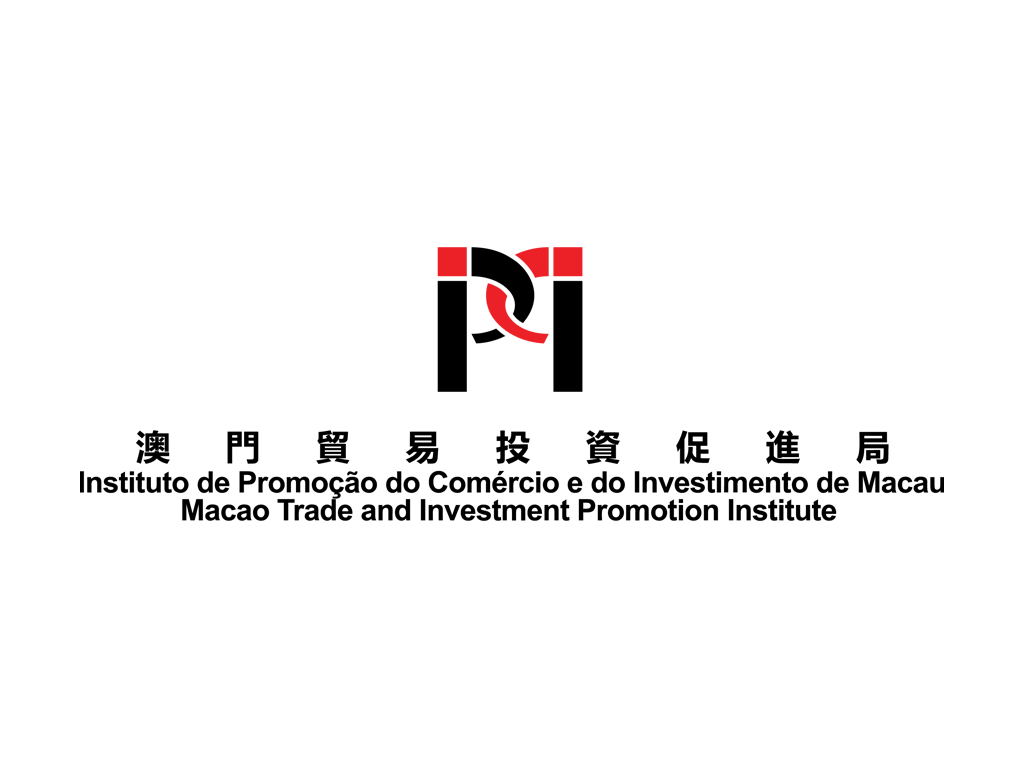Search Issues
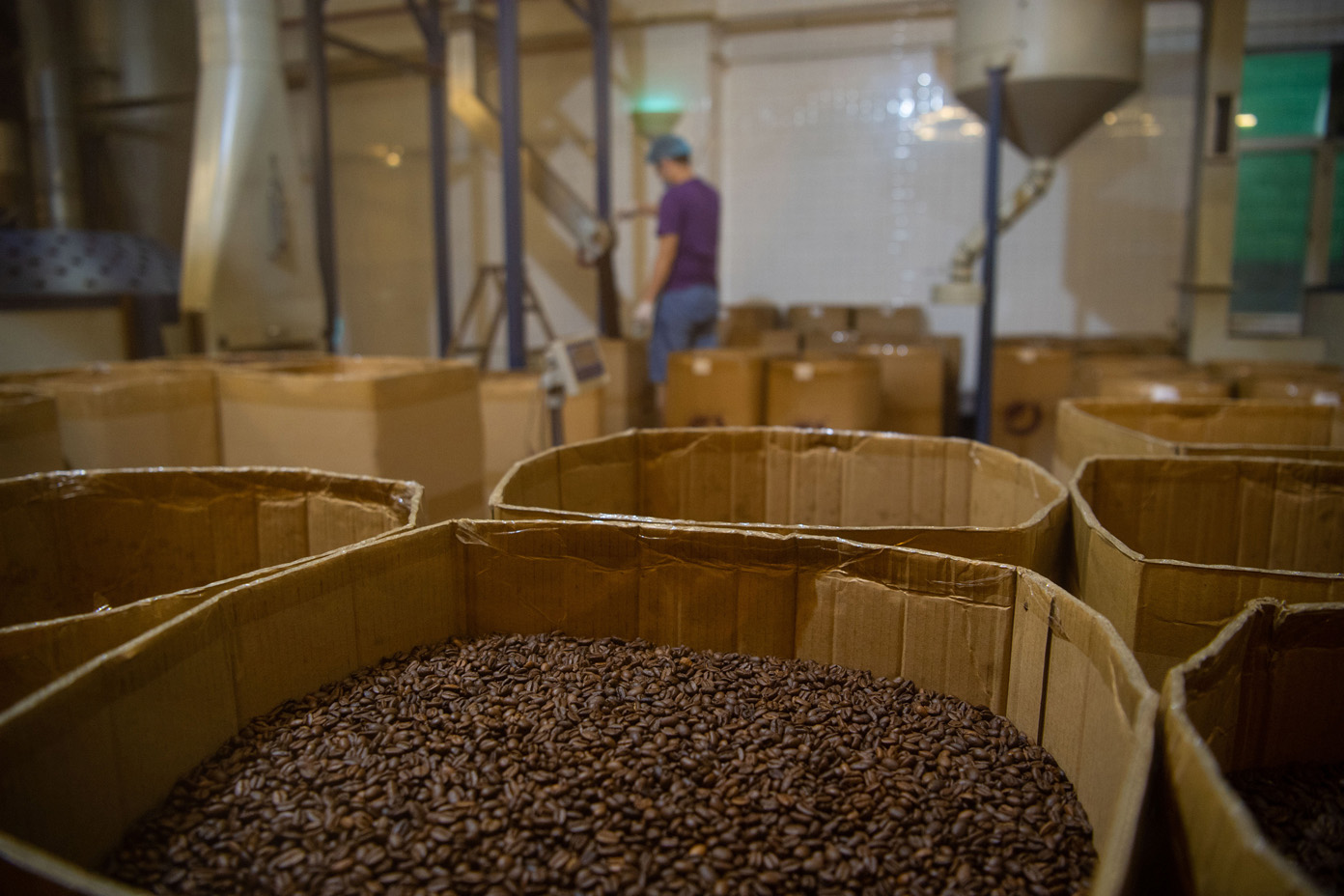
Café T.H.S. Honolulu started out as a coffee factory and supplier in the 1950s
As the old saying goes, “Reputation takes years to build and seconds to lose”. Even more so in a small place like Macao where virtually everyone knows one another. Since upholding a good reputation was paramount for both Café T.H.S. Honolulu and Cheong Kun when they started their businesses more than half a century ago, these long-lasting Macao brands have survived the test of time. Thanks to their high-quality, reputable products, they have successful stories to tell about their past and how they plan to achieve more in future.
Honolulu – born and brewed in Macao
For most, coffee is not only a daily ritual, it is an essential part of one’s life. If you ask anyone born and bred in Macao to name a classic, local coffee brand, Café T.H.S. Honolulu is very likely to be on the tip of their tongues.
In the 1950s, Café T.H.S. Honolulu started out as a coffee factory and coffee product supplier. The focus of their business at the time was roasting, formulating and wholesaling coffee products to local food and beverage outlets. Thirty years later, in 1988, Jack Ung, now owner of Tan Heong San Enterprise Ltd. and Chairman of Café T.H.S. Honolulu, took over the business and decided to expand with a chain of cafés throughout Macao.
Café T.H.S. Honolulu sources a wide selection of premium coffee beans from around the globe, offering unique coffee blends and single origin coffees including Jamaica Blue Mountain, Honolulu, Indonesian Luwak, just to name a few. Sourcing the finest of coffee beans from around the world is paramount to Mr Ung. “We source the best coffee beans from high quality coffee farms in Asia, South America and Africa,” he told Macao Image. “Together with our technique and formulation, we adjust the taste of our products to the preferences of our customers. We believe everyone can find their favourite cup of coffee with us.”
In their multi-story coffee factory at Rua Norte do Parque Industrial in the cross-border industrial zone of Macao, you can smell the aroma of freshly roasted coffee beans from afar. All of Honolulu’s products are produced in Macao, and they are made from one of three modern coffee bean roasting machines fitted in the spacious roasting area.
“Honolulu takes pride in being a ‘Made in Macao’ brand. Our customers can always rest assured knowing that all our coffee products are produced in this ISO 9001 and ISO 22000 certified factory in Macao, under very stringent quality control conditions,” Mr Ung said.
Honolulu’s headquarters not only features an ample coffee production and storage area, but also a bakery floor. The company started a new line for baked goods in 2015, supplying fresh buns as well as Italian- and Danish-style baked goods to hotels, casinos and their own cafés.
“With the growth of our city in the past decade, we’ve managed to engage in new opportunities and venture into new areas beyond coffee production and the restaurant business,” Mr Ung said. “Coffee and pastries are the perfect combo, and this is why we headed in this direction.”
Mr Ung is setting his sights even higher in future with ambitious goals to open two new cafés in Macao and may also expand into the Mainland China market to introduce a fusion-concept restaurant where customers can pair coffee with Chinese dim sum. As Honololu moves forward, Mr Ung stated he aims to stay ahead by keeping an open mind, staying innovative and never settling for less.
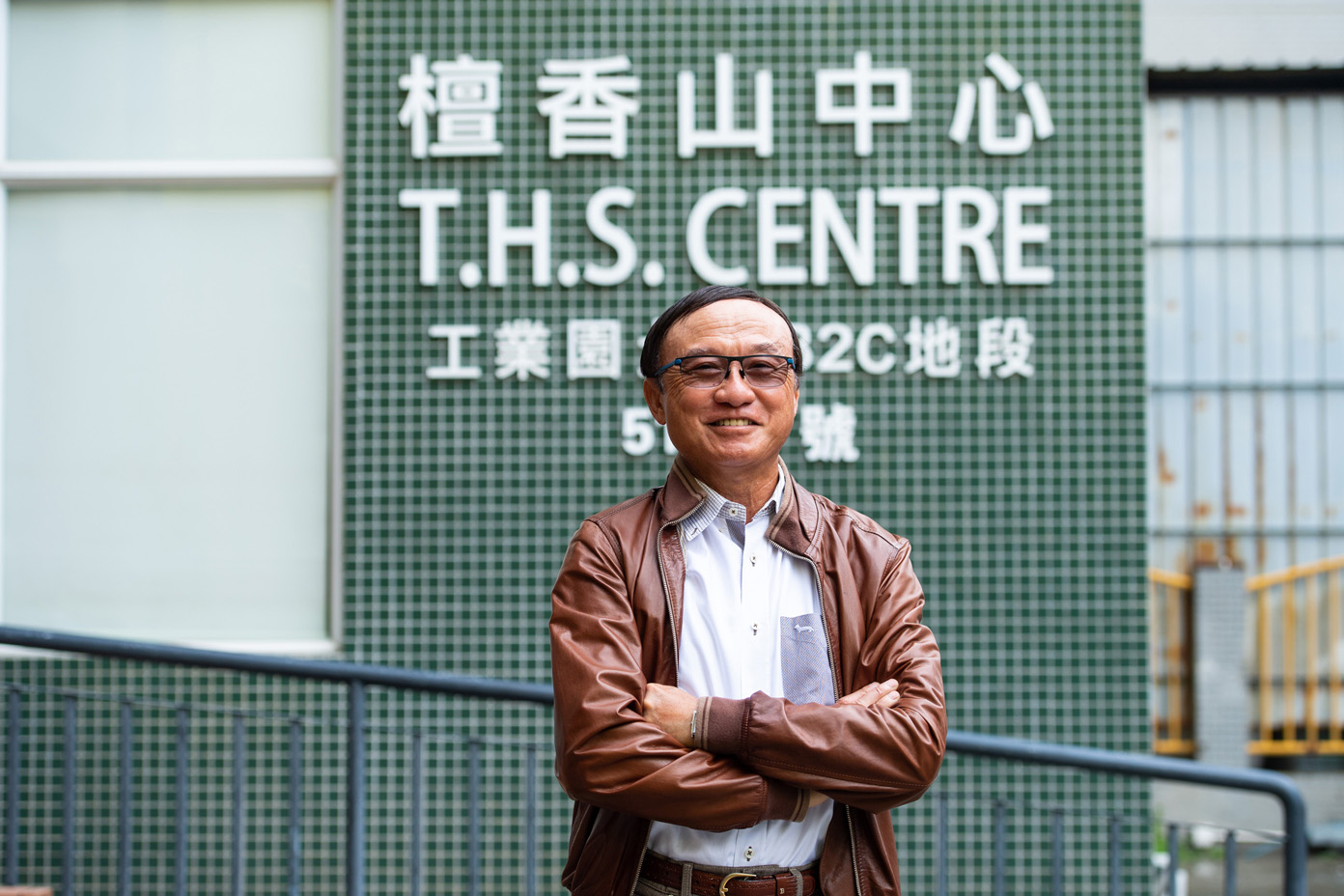
“Honolulu takes pride in being a ‘Made in Macao’ brand.” Jack Ung, Chairman of Café T.H.S. Honolulu
Cheong Kun – trusted homemade remedy
In every Chinese family’s first-aid kit, a bottle of pain remedy oil is an absolute must. And Macao has formulated its very own. After years of clinical studies, Master Cheong Kun first introduced the formula for Cheong Kun oil in the 1950s, and it takes three to four months to produce just one bottle.
Now, more than half a century later, the Cheong Kun remedy oil has become popular not only with Macao locals, but also with visitors from Hong Kong and Mainland China.
Cheong Kin Nang, Director of Fábrica de Medicina Chinesa Cheong Kun and successor of Master Cheong Kun, said that each year, Cheong Kun produces 800,000 bottles of oil, and supplies them to more than 300 local pharmacies.
“We started with a very small volume, but slowly we’ve scaled up through the years thanks to the support of our loyal customers,” Mr Cheong told Macao Image. “Our business relies entirely on the reputation and quality of our product.”
Among the wide array of remedy oils available on the market, Cheong Kun oil is well known for its all-rounded functions – providing pain relief, treating bleeding wounds, swelling and scalding as well as easing rheumatism. The remedy oil is 100 percent natural and free of chemical substances. It is mild and suitable for people of all ages including infants, according to the company.
In 1999, Cheong Kun moved its remedy oil production factory into an industrial building at Rua dos Currais. This millennium milestone marked a new chapter for the pharmaceutical company. With the expanded space, the line of production was modernised and sectioned into different isolated areas – storage, prep work, production, filling and packaging. From start to finish, every bottle of Cheong Kun pain release oil takes months to produce and must undergo the Macao Health Bureau’s strict quality control process.
Modernising the production line also enables Cheong Kun to look into new business opportunities. “At the moment, we are planning to expand our business in Mozambique, a Lusophone country in Africa. With that move, we hope to open doors to other Portuguese-speaking Countries such as Brazil,” explained Cheong Lok Kei, Quality Assurance Supervisor and future successor of the business. He has been fully engaged in the pharmaceutical field since 2011.
“Simplicity makes life easier,” he said. “With that in mind, we are also looking into possibly transforming our product into other user-friendly forms of pain release products, such as bandage and spray, and hopefully we can launch these products in the near future.”
In spite of their moves to modernise, they will always keep the classic orange packaging and kraft paper wrapped around each of the dozen bottles of Cheong Kun oil. For Cheong Kun, it is the traditional, small touches like these that represent the rich history of the local brand.
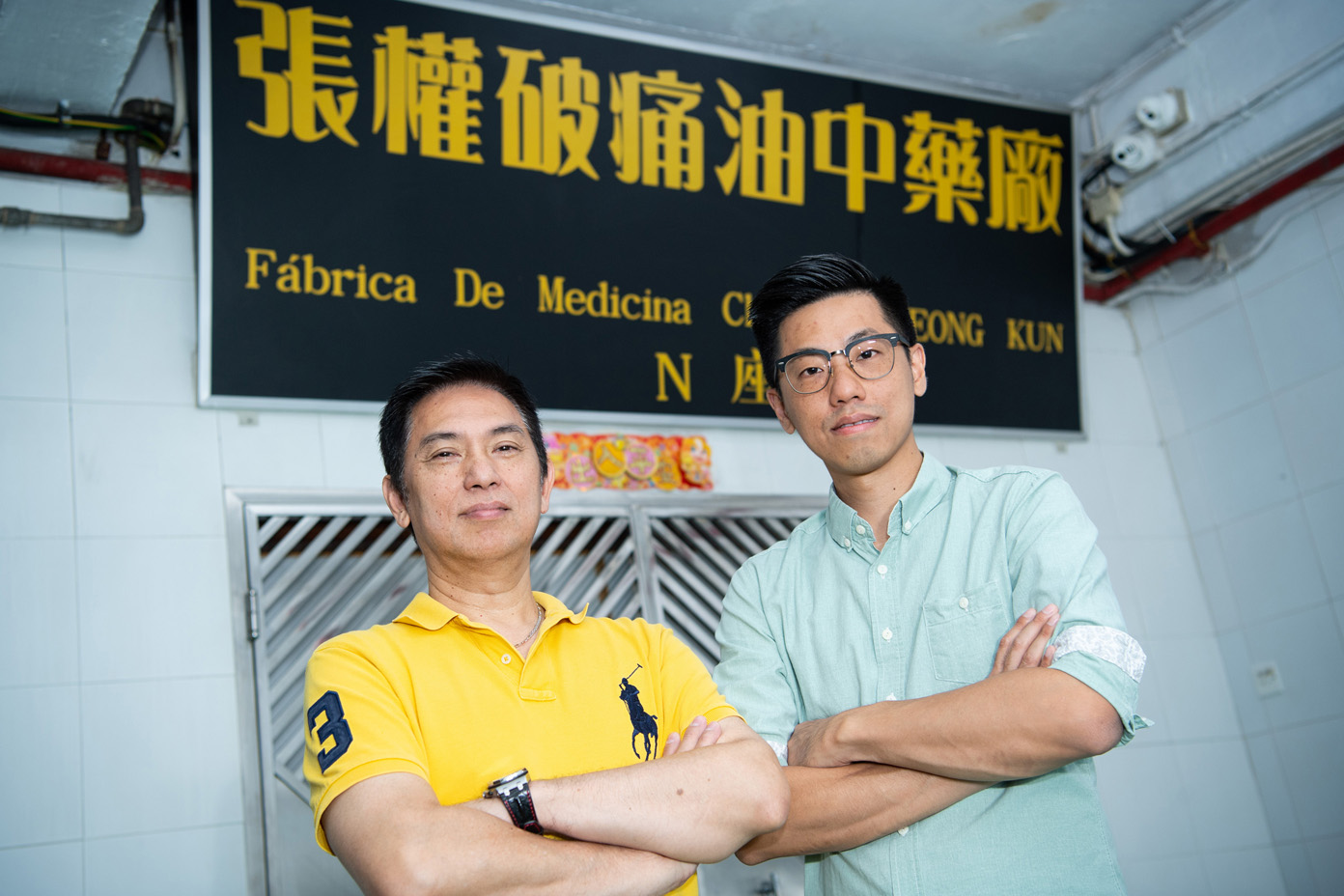
Cheong Kin Nang (left) and Cheong Lok Kei (right) – managing the family business
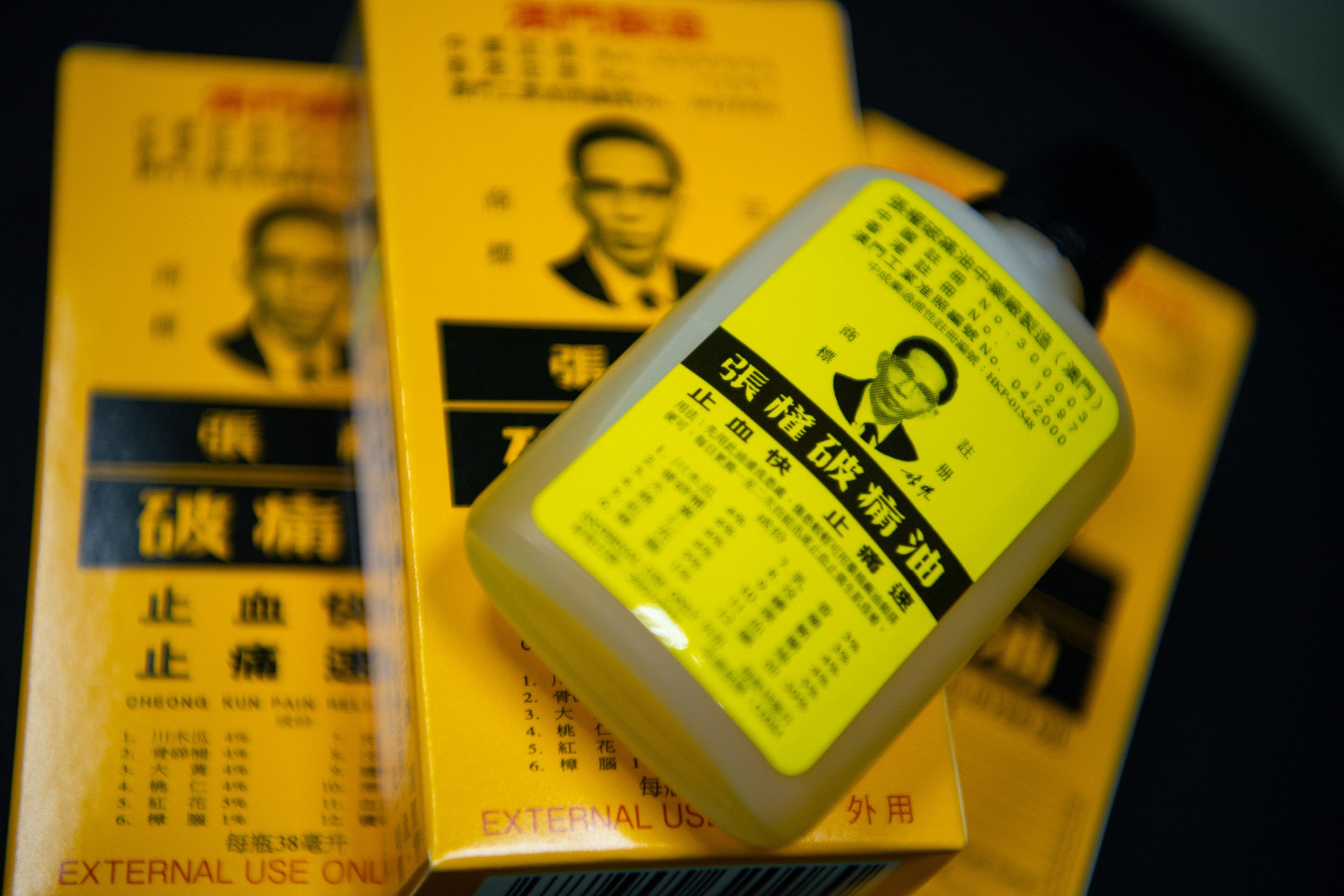
Cheong Kun oil is well known for its all-rounded functions



